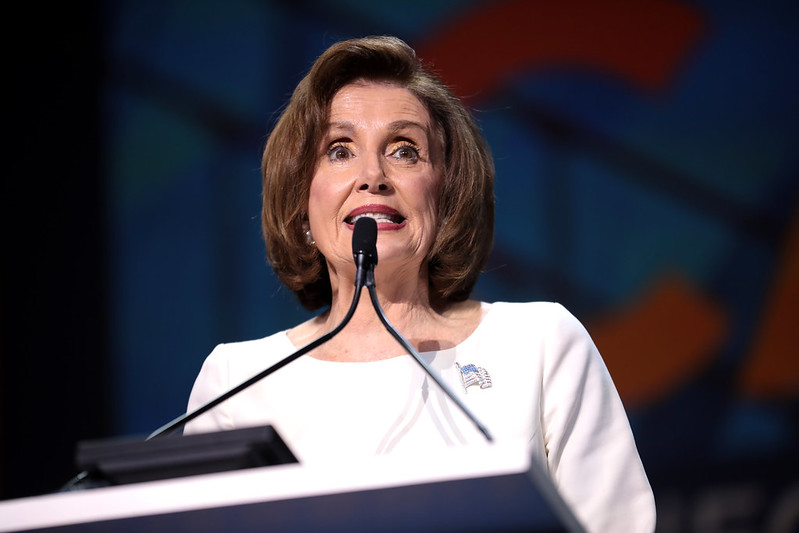
One of Congressional Democrats’ top priorities for the 117th Congress is H.R. 1 / S. 1, the For the People Act of 2021, which seeks to reform campaign finance laws and reduce the influence of money in politics. There are numerous problems with this bill: it would politicize the FEC, would create taxpayer-funded candidates, and would unconstitutionally invalidate hundreds of state election laws. However, one of the most egregious problems with this bill is that it is a massive threat to Americans’ right to free speech. If passed, this law will have a chilling effect on political speech and donations.
To start, this law would mandate a “public file” requirement for any person or organization spending over $500 in a calendar year, forcing them to identify the name, address, and contact information of ad sponsors that are not candidates or with the campaign. Ultimately, this creates heightened barriers and restricts the ability of these entities to advertise.
In fact, the bill transforms the “stand by your ad” disclaimer in video advertisements, forcing organizations to identify their top five donors at the end of advertisements. This represents a radical change in policy: currently, the “stand by your ad” provision simply requires a statement by the candidate or organization/corporation that they approve the communication. In addition, the bill mandates the disclosure of all the names and addresses of donors giving more than $10,000 to groups that engage in “campaign-related disbursements.”
With the incredible rise in partisanship, cancel culture, and doxing, it is more important than ever to protect donor privacy. This isn’t a matter of transparency; rather, it is a new tool to chill speech. If donors can expect to receive threats, experience business losses, and/or receive hate for exercising their right to free speech through political contributions, it’s likely that many people will stop donating altogether.
It is also worth noting that donors can contribute to an organization, but may not support all of the content the organization produces. In this way, many donors’ views will be misrepresented because of these “stand by your ad” requirements. This may lead to donors wanting to have a stronger hold over an organization’s content in fear of being misrepresented. In this way, this measure may have the opposite of its intended effect.
In addition, H.R. 1 undoes the FEC’s “internet exemption” which excludes the internet from regulation of political speech, exposing online communication to the same scrutiny as traditional advertisements. This even includes any communication an organization makes on social media platforms like Twitter and Facebook, including paid staffers managing the platforms.
H.R. 1 also invents a new regulation called “PASO,” an overbroad standard that asks whether political speech “promotes,” “attacks,” “supports,” or “opposes” a federal candidate or official. Besides the blatant unconstitutionality of this regulation, it is also so unclear and broad that it can be used as a weapon by whichever political party is in power. As Rich Lowry explains, the current law “limits expenditures that expressly advocate for the election or defeat of a candidate, or refer to a candidate in public advertising shortly before an election.”
Any and all political, nonelectoral messages can be framed as something which promotes, attacks, supports, or opposes a candidate. Under this law, the party in power can frame their opponents’ political speech this way and subsequently limit their opponents’ speech. These standards will fly in face of the Supreme Court’s assertion that campaign finance rules be clear and reasonable, so as not to create a culture of fear around political speech and one’s ability to abide by those rules.
H.R. 1 is not tailored to simply reining in super PACs or, as many contend, conservative ideas. This law hurts a multitude of organizations with all kinds of philosophical backgrounds. In a 2019 letter to the U.S. House of Representatives, which later went on to pass this bill, the left-of-center American Civil Liberties Union (ACLU) said the following:
“While some of our concerns have been addressed or mitigated since introduction, the bill, in its current form, would still unconstitutionally burden the speech and associational rights of many public interest organizations and American citizens. These provisions will chill speech essential to our public discourse and would do little to serve the public’s legitimate interest in knowing who is providing substantial support for candidates’ elections.
Clearly, these provisions would hurt causes on both the left and right, both of which are essential for healthy public discourse.
Every one of the aforementioned policy changes in this Democrat-led power grab has a chilling effect on free speech. Even if these provisions are not explicitly restricting certain speech, they do erect barriers which powerfully discourage people from donating and organizations from spreading their ideas. In this toxic political climate, we must continue to protect donors’ privacy and everyone’s ability to exercise free speech. Otherwise, public discourse will continue to be dismantled and cheapened.

